The Pigeon Hill Preserve is open for free visitation from dawn to dusk, 7 days a week, all year long.
The Pigeon Hill Preserve officially opened for visitation on April 22nd, 2023. What a way to celebrate Earth Day!
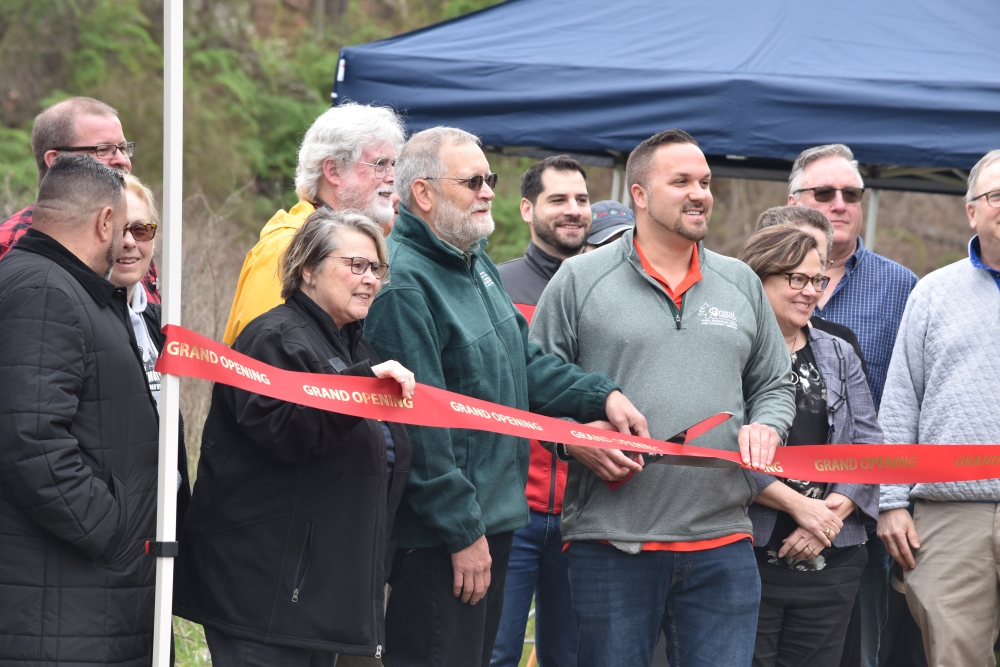
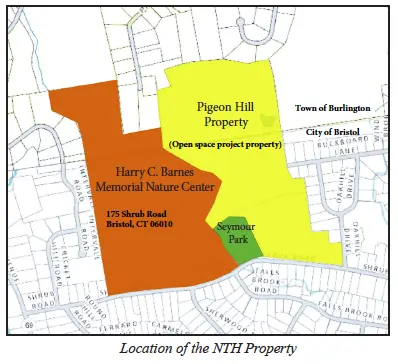
In 2022, the City of Bristol and Burlington and ELCCT were able to officially purchase and conserve the Pigeon Hill property, saving it from mining and development. Though ELCCT is not inherently against sand and gravel extraction or development, in this case, this proposed plan would have a devastating effect on the neighborhood, would wipe out a geologically significant landform, degrade the quality of a pristine trout stream that bisects the property, and impair ELCCT’s ability to provide the education and conservation it has become known for.
The open-space property serves to enhance the land currently owned by ELCCT. The land gets its name from the reports that Passenger Pigeons, now extinct, once roosted in large numbers on the glacial esker that is locate don both the existing nature center property as well as the Pigeon Hill property. The esker was formed by sediment brought in by a river under the glacier that once covered the land. Once the glacier melted, centuries ago, it left behind a tall, meandering ridge: a local landmark.
What’s our plan now? We protect the entire assemblage as open space and manage the habitats as an extension of the Barnes Nature Center property.
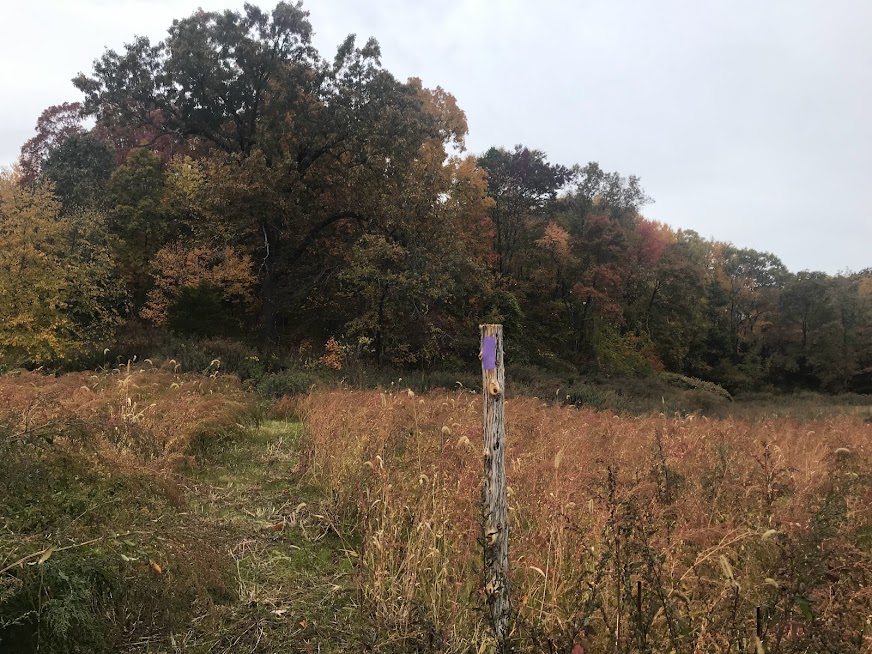
Habitat Restoration
We’ll be working in tandem with the City of Bristol to restore areas already mined on the preserve. In total, the preserve is 63.9 acres.
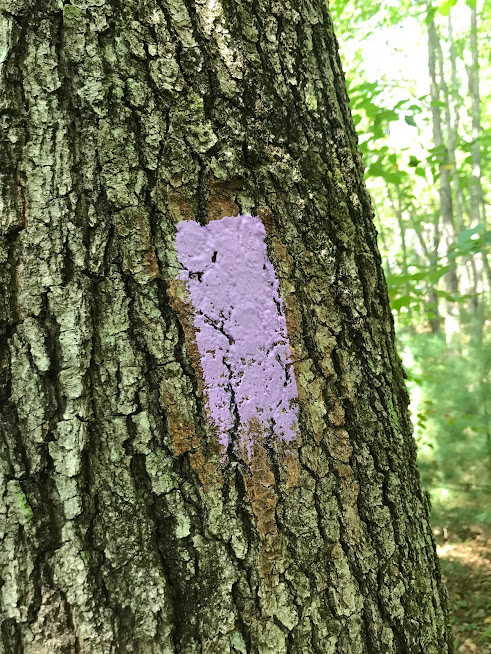
Extension of Nature Center Trails
Hike the NEW Pigeon Hill trail. A 1.3 mile loop that goes from Pigeon Hill to the Barnes Nature Center, and back. View unique geological features, such as the historic esker that the preserve protects.

Diversify Wildlife Habitats
Including the road facing wildflower field and the grassy wooded habitat areas utilized by the American Woodcock as a breeding ground.
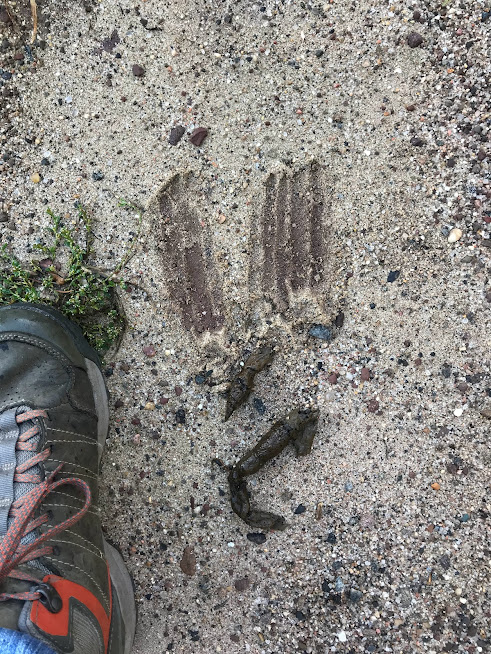
Education Opportunities
Our education team is in the works on developing research and other educational opportunities for community members, school children and universities.
When you come to explore nature at the Pigeon Hill Preserve, please be respectful of the native habitats. All dogs must be on a leash. Please pick up after your pets. Thank you for your cooperation
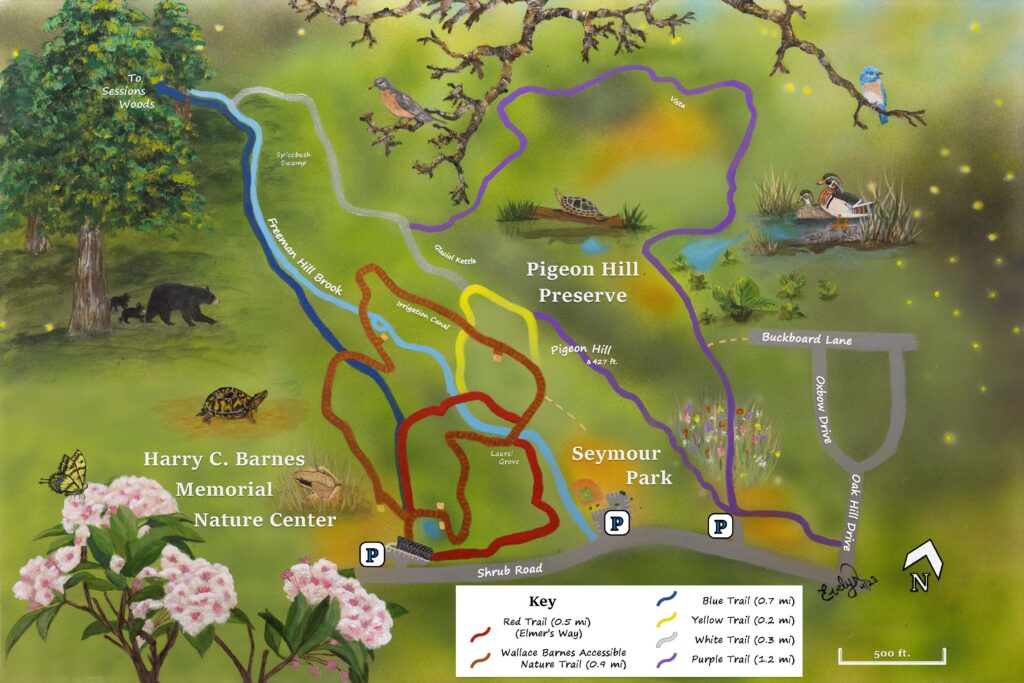
Come over for a hike!
To arrive at the front gate, use the address below.
342 Shrub Road, Bristol, CT 06010
